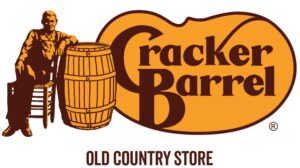Buying a Business: The Value of Brand Pt 2 – A Cautionary Tale
27 October 2025: Buying a Business: The Value of Brand, Pt 2 – A Cautionary Tale
Last week’s post – about the value of a business’ brand – was an overview of how a brand can drive business and, as a result, impact the value of that business. That post was widely read and generated a number of comments in which readers expressed their own experience with businesses the owners of which, new and old, ignored the value of the business’ brand.
This post tells the true story – one of several in our files – of a multi-generation business that was sold to a buyer – unrepresented and new to business ownership – who, to their significant and nearly catastrophic detriment, ignored or didn’t understand the value the brand gave to the business they were buying.
 When buying a business that has been part of the community for decades, one of the most critical and valuable assets that can be transferred is its brand. A brand is more than just a logo or a name; it’s the essence of the business’s identity, built over years of trust, consistency, and customer relationships. The loss of this brand identity as a result of the business being sold can be catastrophic. A prime example of this can be seen in the story of a much-loved, eponymous retail business that was sold after 40 years of operation.
When buying a business that has been part of the community for decades, one of the most critical and valuable assets that can be transferred is its brand. A brand is more than just a logo or a name; it’s the essence of the business’s identity, built over years of trust, consistency, and customer relationships. The loss of this brand identity as a result of the business being sold can be catastrophic. A prime example of this can be seen in the story of a much-loved, eponymous retail business that was sold after 40 years of operation.
A Legacy Built on Trust
The business in question had been a cornerstone of its community. The name of the business, which was the family’s name, was synonymous in its market with reliability, quality products, and personalized service. Customers knew the owners and staff by name and the owners, in turn, knew many of their customers from church, community events and high school athletics, in addition to their patronage of the business.
__________________________________________________________________________________
We offer a comprehensive coaching program – both group coaching in our Brokers’ Roundtable℠ community as well as one-on-one coaching – tailored to Realtors, business owners , buyers and anyone interested in valuing, buying or selling a business.
To learn more, check out Resources in The Brokers Roundtable℠
___________________________________________________________________________________
This bond was not forged overnight. Over the years, the family took the time to build relationships with both their customers and suppliers. Many of the staff had worked at the store for years—some starting with their first summer job in high school. They understood the products inside and out, they knew the preferences of regular customers – many of whom were the parents of their school friends or friends of the owners. The close-knot nature of the business and the community provided a unique ability to create a welcoming environment. It wasn’t just the products that kept people coming back; it was the sense of familiarity and personal touch that gave the business its strong foundation.
A business like this, built on long-term relationships and trust, becomes a part of its customers’ lives. It’s not easy to find a company with such a rich history, and the customers who supported it were more than just patrons—they were part of the store’s story. The brand was an extension of the founder’s family legacy and reputation.
The Transition: An Agregious Misstep
After decades of success, the family decided to sell the business. The new owners, eager to make their own mark, decided to change the name of the business to their own, a decision that set them up for disaster.
Changing the name of a business, especially a family name, can be one of the most damaging moves you can make when acquiring a family-owned company with an established presence. We see this too often: The new owners, giddy with the rush of becoming “business owners”, failed to recognize that the name of the business was more than just a label. It was a promise—a symbol of the quality, trustworthiness, and familiarity that customers had come to expect. It was, in one important respect, “the business”.
And if changing the name wasn’t enough, the new owners also replaced long-term employees, many of whom had been integral to the business’s success. These employees had years of experience and were recognized by the customers, some of whom had been loyal shoppers for decades. They weren’t just employees; they were part of the store’s brand story. But the new owners brought in unfamiliar, less experienced staff who lacked the personal connection with the customers.
This Post is Sponsored By Deal Memo, a provider of Confidential Information Memoranda For Business Brokers and M&A Specialists
From the customers’ perspective, significant aspects of what they had loved about the store was suddenly gone. The new staff didn’t know their preferences, the faces were unfamiliar, the hours had changed, and the principal new owner lacked the “personal touch” many customers found so important. For long-time customers, this wasn’t just a change in ownership—it felt like a change of everything about the business.
Erosion of Trust, Declining Sales and a Shut Down
The fallout from these decisions was immediate. Long-time customers were skeptical. They didn’t recognize the new staff, and they didn’t trust the new ownership to maintain the same level of quality and service they had come to rely on. Even loyal customers who had supported the store for years now found themselves hesitant to return.
In the retail industry, particularly in businesses that rely on local loyalty and personalized service, the loss of customer trust can have a devastating impact. Anyone buying a business MUST keep this front of mind.
Not surprisingly, the changes made by the new owners sent a clear signal that the business was no longer the one customers had known and loved. Skeptical shoppers began to look elsewhere, seeking the consistency and familiarity that the store once offered but no longer did.
Sales, which had once been steady, began to decline. The new owners, unfamiliar with the nuances of the business and without the experienced staff to help them navigate these challenges, struggled to maintain the high standards of service that customers expected. They found themselves in a difficult position: trying to run a business that no longer had the goodwill of the community behind it.
_____________________________________________________________________________________
REALTORS! Our course, “Learn How to Value and SUCCESSFULLY Sell Businesses“, teaches you how to accurately value and successfully sell businesses.
Don’t Miss Out on the “Silver Tsunami”!
As the months went on, the problems only worsened. Even as sales were declining, the new owners attempted to raise prices to offset that decrease, as well as the costs of changes they had made, but this only alienated more customers. With the loss of long-term staff and the shift in ownership, suppliers also began to demand new terms, further eroding the store’s profit margins. What had once been a thriving business with strong relationships with suppliers and customers now faced the reality of being, essentially, a “new” business in the eyes of its community and vendors.
Though the business has not died, the inevitable happened. After 10 months of declining sales and increased frustration, the owners were forced to close the doors and rethink everything they were doing. They had failed to understand the critical importance of the business’s brand, and by neglecting it, they had dismantled everything that made the business special.
The Bottom Line
After about five months, the business reopened. Several helpful changes were made – prices were lowered, broader product selection, better-trained and more personable employees brought on, and more consistent, albeit still shorter, hours – but the branding damage was done. There was no way to correct it.
 The story of this family-owned retail business illustrates the fundamental importance of a brand when a business changes hands. A business’s brand is more than just the name on the sign—it represents a promise to customers, built over years of hard work, dedication, and trust. When that brand is carelessly altered (for a very public contemporary example, consider the recent Cracker Barrel firestorm) or abandoned, it can lead to a loss of the very customers who made the business successful in the first place.
The story of this family-owned retail business illustrates the fundamental importance of a brand when a business changes hands. A business’s brand is more than just the name on the sign—it represents a promise to customers, built over years of hard work, dedication, and trust. When that brand is carelessly altered (for a very public contemporary example, consider the recent Cracker Barrel firestorm) or abandoned, it can lead to a loss of the very customers who made the business successful in the first place.
For anyone considering buying a business, the lesson should be clear: never underestimate the value of the brand. It’s not just an asset; it can often be the lifeblood of the business. When taking over a business, respect for its brand identity, the staff, and the relationships with customers and suppliers is essential to ensuring the longevity and success of the operation. Changing the name, replacing key employees, or disregarding the culture of the business can alienate loyal customers and lead to disastrous results.
In the end, a business’s brand is its most valuable asset—not just because of its potential for profit, but because it embodies the trust, loyalty, and relationships that have been built over time. Without those, even the best business model will struggle to survive.
Interested in learning what a business is worth? Check out this 6-part video series, “How Much is My Business Worth“on our YouTube channel.
“Forget past mistakes. Forget failures. Forget everything except what you’re going to do now and do it.“
– Will Durant
If you have any questions or comments on this topic – or any topic related to business – I’d like to hear from you. Put them in the comments box below. Start the conversation and I’ll get back to you with answers or my own comments. If I get enough on one topic, I’ll address them in a future post or podcast.
I’ll be back with you again next Monday. In the meantime, I hope you have a safe and profitable week.
Joe
Searching For…
A NOTE TO READERS: Our “Searching For…” feature has been moved to our online support platform, The Brokers Roundtable℠. It will appear there exclusively.

#business #businessacquisition #sellabusiness #becomeabusinessbroker #businessbrokering #businessvaluation #MergersandAcquisitions #buyabusiness #sellabusiness #realtor #realestateagents
The author is the founder, in 2001, of Worldwide Business Brokers and holds a certification from the International Business Brokers Association (IBBA) as a Certified Business Intermediary (CBI) of which there are fewer than 1,000 in the world. He can be reached at jo*@*******************og.com

